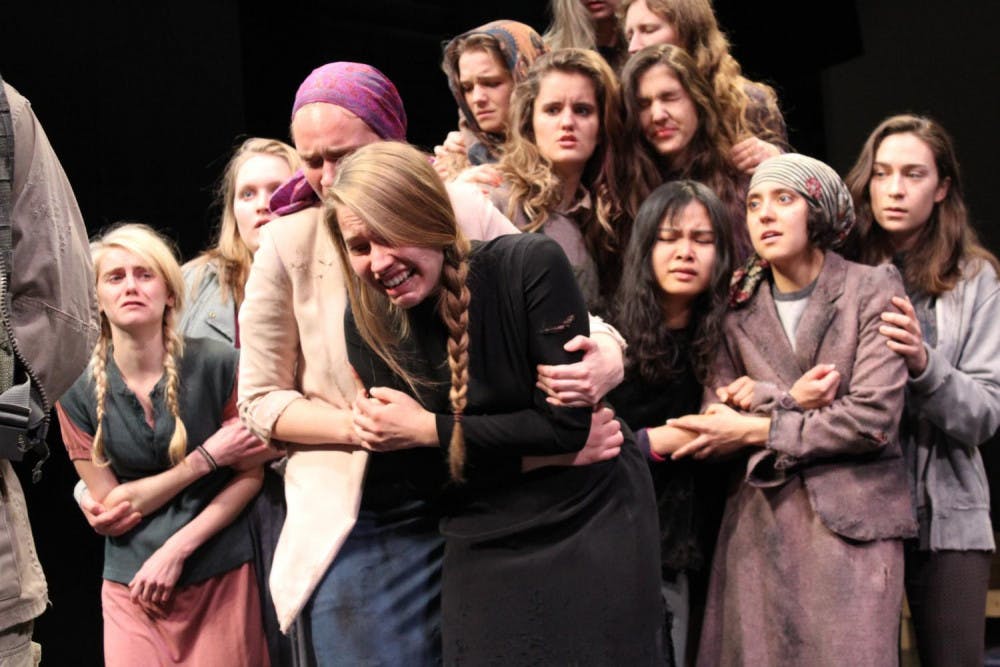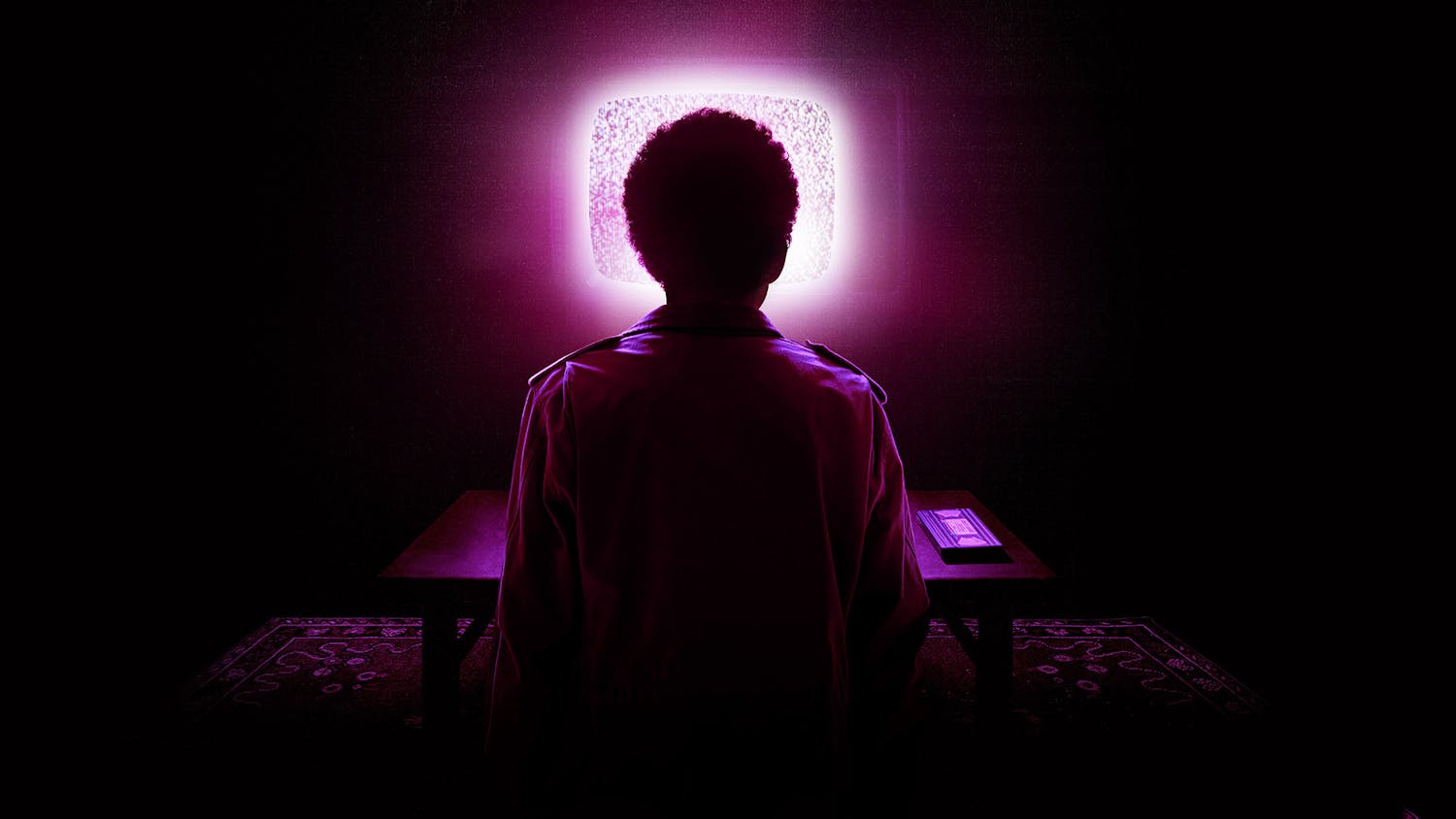“Like the mother bird at her plundered nest,” Hecuba says.
Grieving, suffering Hecuba.
“Do you even remember, King of the gods, that we exist, while the very air explodes around us, and fire reduces our city to ashes and stone?”
Troy is to be burned. The most agonizing of Hecuba’s wails are not enough to stir the gods. Abandoned, the mother stands alone and bereft of hope. She has lost her son, the Prince of Trojans, the best of men: Hector, the son of Priam. She has lost her daughter, a sacrifice to the very gods who now pretend to be deaf. Now, she must lose her grandson.
Andromache must give him up, though he is her own son, her only son. She must look on as her child is thrown from the walls of Troy. Humanity must look on, as all justice is violated, as the ugliest face of the Greeks – of the best of humans! – is uncovered. A face naked and ugly – a face human, all too human.
Caitlyn Meagher ’17 played Hecuba and when I looked into her eyes, I was almost convinced. To convince an audience in a tragedy is no easy task, and Meagher managed to do it for almost the entirety of the two hours. Considering the production did not even allow her an intermission, she did a very fine job indeed.
Madeleine Russell ’19 played Andromache. She had to summon a mother’s devastation as her child is stripped from her arms and say not a word as he dies the most gruesome of deaths. I cannot comprehend how one could ever do justice to Andromache’s tears, but Madeleine did it exceptionally well. Her stage presence was remarkable, though her gestures and her movement around the stage were a little too quick for the Andromache of my imagination; perhaps that was the director’s intention.
The director, Vanessa Mildenberg, visiting assistant professor of theatre, definitely managed to create a contrast between the resigned, old Hecuba and the desperate, suffering, but still young Andromache.
Roxy Adviento ’18 played a scheming, unrepentant Helen with convincingly seductive eyes. Michael Brady ’17 impressed as Talthybius and his final monologue, which was delivered while holding the vulgarized body of Astyanax in his arms, was tender and could reduce one to tears.
The set was appropriately minimalist, but I wish they had used rocks of a different material. Instead, the rocks were nearly identical blocks – identical in both color and shape – which sounded hollow when stepped upon or when Hecuba struck one in rage, which damaged the illusion. Altering the illusion was not a problem by itself: the helicopter sounds of the beginning and the US army uniforms of the Greek soldiers, for example, altered the illusion to make it more relevant, more real, for us.
Mildenberg allowed her actors to experiment quite a bit in order to create unique characters. Mary Baillie ’18, who was a member of the chorus, said each of the chorus members invented a backstory for their characters in order to “individualize” the chorus members. While I am not sure the Greeks would have liked that, it worked fine for us moderns. We like a personal voice and a personal story and have no patience for the voice of the collective, even though the entire purpose of the chorus in Greek tragedy might be to represent the invisible but overwhelming voice of the city – or the ‘society’, in our modern vocabularies.
The lighting design was phenomenal, especially in the final scene, when Troy was set on fire. Professor of Theater Mark Evancho made it seem as if the whole stage was lit, and I had to actually turn around to confirm that there were no naked flames in the room. Costume design was notable too, and although an overall grey-brown color scheme was followed, Visiting Assistant Professor of Theatre Mira Veikley created a unique look by combining modern and ancient clothing. Tanks were combined with what seemed to be plain potato sacks, petticoats with peplos, striped patterned shirts with drab, torn pants; the costumes toyed with the attention of the spectator, but the color scheme kept them from becoming distracting.
“Women of Troy” was complex and heartbreaking, though it is never easy to do justice to Euripides’ tragedy. Working off of Don Taylor’s evocative translation, Mildenberg has envisioned a performance that occupies both the modern and Ancient Greek worlds. Her vision is an attempt at a simultaneous approximation of the ancient and the modern, and I think she has done a good job of realizing it.




